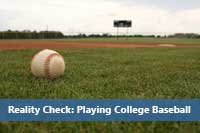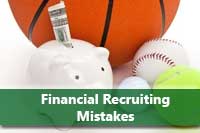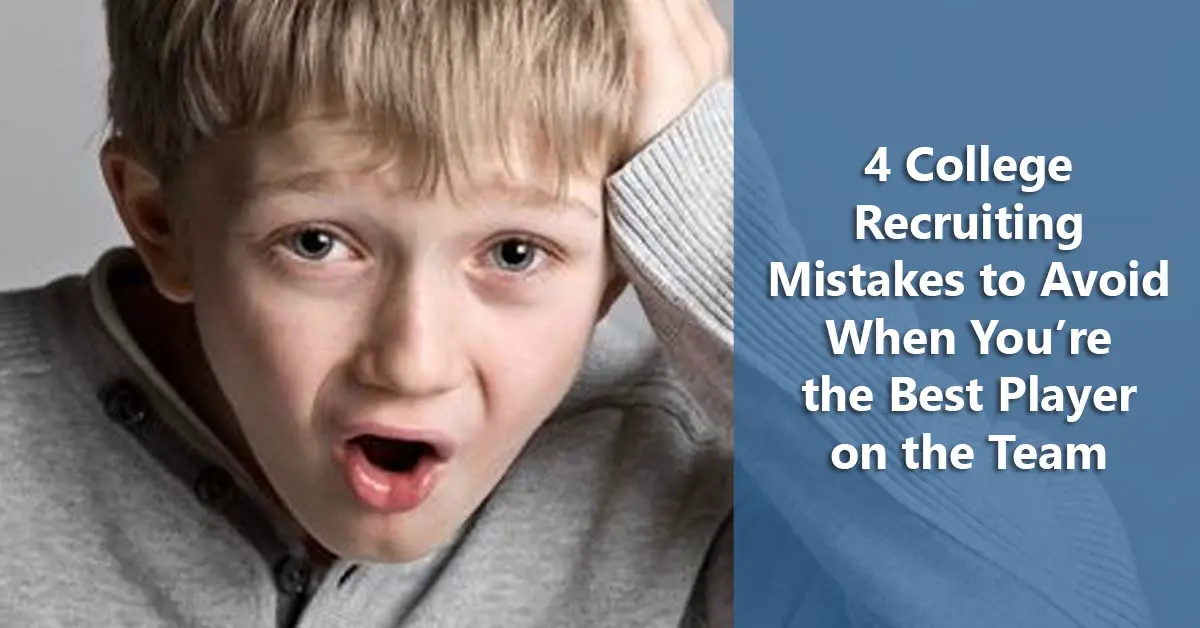 Nobody likes wasting their time and college coaches are no exception. So when you start to contact college coaches, be sure that you are prepared. If nothing else, what sort of impression do you think you make when the coach has to inform you of basic facts regarding the school or finds out that you aren’t qualified to play on his team?
Nobody likes wasting their time and college coaches are no exception. So when you start to contact college coaches, be sure that you are prepared. If nothing else, what sort of impression do you think you make when the coach has to inform you of basic facts regarding the school or finds out that you aren’t qualified to play on his team?
Soccer
5 Ways to Get Smart About College Baseball Recruiting
 As you start the college baseball recruiting process, you need to know what you don’t know. And sometimes it feels like you would rather not know than try to make sense of all of the information out there. Not only is there so much information out there, so much seems contradictory. Since the recruiting process will be different for each family, you can’t necessarily make your plans based on what happened to someone else. Sometimes you just need a baseline to start with so that you can make sense of the rest of the information. So before drowning in Google search results, try these resources first.
As you start the college baseball recruiting process, you need to know what you don’t know. And sometimes it feels like you would rather not know than try to make sense of all of the information out there. Not only is there so much information out there, so much seems contradictory. Since the recruiting process will be different for each family, you can’t necessarily make your plans based on what happened to someone else. Sometimes you just need a baseline to start with so that you can make sense of the rest of the information. So before drowning in Google search results, try these resources first.
9 Steps to Figure Out Your Chances of Getting a College Athletic Scholarship
 It would be nice if there was a formula somewhere that high school players could use to calculate their odds of getting an athletic scholarship. All they would have to do is to enter their stats, maybe their high school or club teams, and the formula would tell them their chances and even indicate how much of a scholarship to expect! Wouldn’t that be nice?
It would be nice if there was a formula somewhere that high school players could use to calculate their odds of getting an athletic scholarship. All they would have to do is to enter their stats, maybe their high school or club teams, and the formula would tell them their chances and even indicate how much of a scholarship to expect! Wouldn’t that be nice?
Reality Check Part 2: What to do to Play College Baseball
 Hopefully, the previous post demonstrated that the chances of getting a scholarship to play college baseball aren’t very good. Sometimes I think parents talk about the baseball scholarship as a way to justify the amount of time and money their family is spending on baseball. Claiming that it’s all to pay for college is an easy and obvious excuse.
Hopefully, the previous post demonstrated that the chances of getting a scholarship to play college baseball aren’t very good. Sometimes I think parents talk about the baseball scholarship as a way to justify the amount of time and money their family is spending on baseball. Claiming that it’s all to pay for college is an easy and obvious excuse.
338 Women’s D1 Soccer Colleges
 (List at end updated for 2023.) There are 338 women’s D1 soccer schools in 32 conferences according to the Office of Postsecondary Education (OPE). The average number of participants per team in 2020 was 29.4 and the NCAA allows a maximum of 14 scholarships for D1 women’s soccer. This is more than allowed by men’s teams, 9.9, and more than all others sanctioning bodies except the NJCAA which allows 18. Soccer is an equivalency sport which means singles scholarships can be divided among multiple players. Therefore, players receiving full-ride soccer scholarships will be in the minority.
(List at end updated for 2023.) There are 338 women’s D1 soccer schools in 32 conferences according to the Office of Postsecondary Education (OPE). The average number of participants per team in 2020 was 29.4 and the NCAA allows a maximum of 14 scholarships for D1 women’s soccer. This is more than allowed by men’s teams, 9.9, and more than all others sanctioning bodies except the NJCAA which allows 18. Soccer is an equivalency sport which means singles scholarships can be divided among multiple players. Therefore, players receiving full-ride soccer scholarships will be in the minority.
206 Men’s D1 Soccer Colleges
 (See the list for 2023 at the bottom.) There are 206 NCAA D1 soccer colleges for men in the United States according to the Office of Postsecondary Education (OPE). The NCAA allows colleges to offer a maximum of 9.9 scholarships for men’s D1 soccer teams which is less than the 12 allowed by the NAIA and the 18 for JuCo programs. Since Soccer is an equivalency sport, single scholarships can be divided among multiple players meaning few, if any, players will receive full-ride D1 scholarships.
(See the list for 2023 at the bottom.) There are 206 NCAA D1 soccer colleges for men in the United States according to the Office of Postsecondary Education (OPE). The NCAA allows colleges to offer a maximum of 9.9 scholarships for men’s D1 soccer teams which is less than the 12 allowed by the NAIA and the 18 for JuCo programs. Since Soccer is an equivalency sport, single scholarships can be divided among multiple players meaning few, if any, players will receive full-ride D1 scholarships.
What Athletes Need to Know Before Starting the College Recruiting Process
 This is a basic introduction to the college recruiting landscape. I’m sure there will be many who will read this and think, “you’ve got to be kidding-how could you not know this?” Yet, you would be surprised at how many families don’t know that D3 schools don’t offer athletic scholarships or that some rules will depend on the college’s conference. Consider this a review of the basic college athletic terms that you need to know to even start the college recruiting process.
This is a basic introduction to the college recruiting landscape. I’m sure there will be many who will read this and think, “you’ve got to be kidding-how could you not know this?” Yet, you would be surprised at how many families don’t know that D3 schools don’t offer athletic scholarships or that some rules will depend on the college’s conference. Consider this a review of the basic college athletic terms that you need to know to even start the college recruiting process.
5 Financial Mistakes that Can Limit Your Chance of Playing Your Sport at the College Level
 So far I’ve covered college recruiting mistakes concerning signs that you don’t understand the college athletic recruiting process and mistakes players and families make about their ability and what it means. Today, I’m going to cover mistakes related to finances when looking for athletic scholarships. If it’s really about using sports to help pay for college, you need to avoid the following college recruiting mistakes:
So far I’ve covered college recruiting mistakes concerning signs that you don’t understand the college athletic recruiting process and mistakes players and families make about their ability and what it means. Today, I’m going to cover mistakes related to finances when looking for athletic scholarships. If it’s really about using sports to help pay for college, you need to avoid the following college recruiting mistakes:
4 College Recruiting Mistakes to Avoid When You’re the Best Player on Your Team
 Many high school players and their families believe that being the best player on their teams is their ticket to playing at the college level. The truth is that star high school athletes are likely to make some assumptions about their ability that will undermine their chances of playing in college. Here are four college recruiting mistakes based on assumptions of talent that you must avoid.
Many high school players and their families believe that being the best player on their teams is their ticket to playing at the college level. The truth is that star high school athletes are likely to make some assumptions about their ability that will undermine their chances of playing in college. Here are four college recruiting mistakes based on assumptions of talent that you must avoid.









